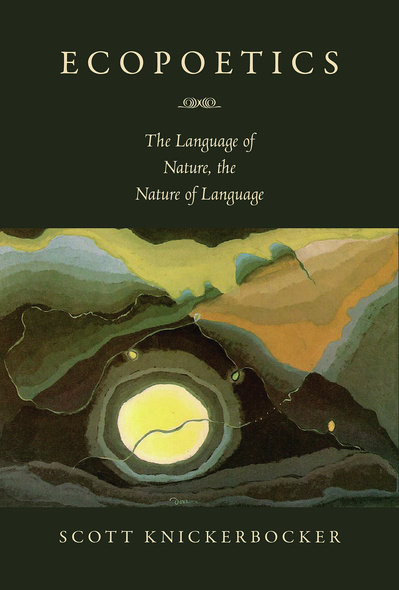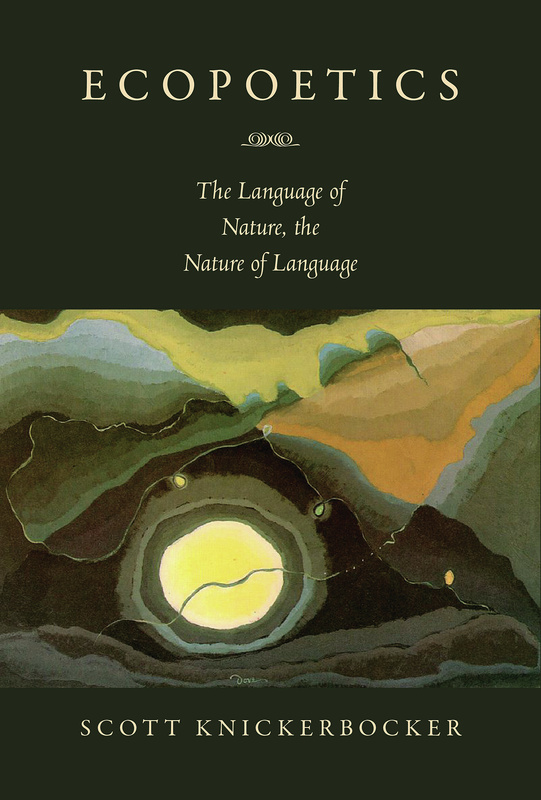Ecopoetics
The Language of Nature, the Nature of Language
University of Massachusetts Press
Ecocritics and other literary scholars interested in the environment have tended to examine writings that pertain directly to nature and to focus on subject matter more than expression. In this book, Scott Knickerbocker argues that it is time for the next step in ecocriticism: scholars need to explore the figurative and aural capacity of language to evoke the natural world in powerful ways.
Ecopoetics probes the complex relationship between artifice and the natural world in the work of modern American poets—in particular Wallace Stevens, Elizabeth Bishop, Richard Wilbur, and Sylvia Plath. These poets relate to nature as a deep wellspring of meaning, although they all avoid using language the way most nature writers do, merely to reflect or refer directly to the world. Each of these poets, in his or her own distinct way, employs instead what Knickerbocker terms sensuous poesis, the process of rematerializing language through sound effects and other formal devices as a sophisticated response to nonhuman nature.
Rather than attempt to erase the artifice of their own poems, to make them seem more natural and thus supposedly closer to nature, the poets in this book unapologetically embrace artifice—not for its own sake but in order to perform and enact the natural world. Indeed, for them, artifice is natural. In examining their work, Knickerbocker charts a new direction for ecocriticism.
Ecopoetics probes the complex relationship between artifice and the natural world in the work of modern American poets—in particular Wallace Stevens, Elizabeth Bishop, Richard Wilbur, and Sylvia Plath. These poets relate to nature as a deep wellspring of meaning, although they all avoid using language the way most nature writers do, merely to reflect or refer directly to the world. Each of these poets, in his or her own distinct way, employs instead what Knickerbocker terms sensuous poesis, the process of rematerializing language through sound effects and other formal devices as a sophisticated response to nonhuman nature.
Rather than attempt to erase the artifice of their own poems, to make them seem more natural and thus supposedly closer to nature, the poets in this book unapologetically embrace artifice—not for its own sake but in order to perform and enact the natural world. Indeed, for them, artifice is natural. In examining their work, Knickerbocker charts a new direction for ecocriticism.
Ecopoetics provides inroads for ecocriticism into the study of these significant poets, and will open new possibilities in the critical discourse concerning twentieth-century American poetry in general.'—Bernard Quetchenbach, author of Back from Far Field: American Nature Poetry in the Late Twentieth Century
'This is an intense read. . . . What I particularly liked about the book was that is was an invitation to slow reading, careful consideration, and deep contemplation of the accomplished and beautifully crafted work of Stevens, Bishop, Wilbur, and Plath. These are valuable invitations indeed.'—Earthlines Review
'Attention to sound and signification of poetry reveals the cleavage between nature and human nature, a juxtaposition that both separates and conjoins. Marked by sincere, impassioned, informed clarity, Knickerbocker's book shines a light on poetry that heretofore had not been considered nature poetry. Recommended.'—Choice
'If you want to use more metaphor and less mimesis in your nature poetry, this may be a good book for you. Though you would not at once associate the four writers discussed in this book with nature poetry—you would associate them with form and/or metaphor and other poetic devices. Because Knickerbocker does such a fascinating job of explication with these writers' works, you are bound to enjoy his pointing out how they express 'sensuous poesis,' thus making nature come alive in a very different way from what we usually expect to find in most nature poetry.'—The Weekly Avocet
'Knickerbocker offers detailed readings of major poems by each of the writers to argue not only for the ecocentric thrust of poetry's natural artifice--or what we can call the interplay between poetic artifice and natural reality--but also for the aptness of regarding Stevens, Bishop, Wilbur, and Plath as ecopoets, which strikes me as a significant achievement both in the way it broadens the scope of ecoriticism and in the (new) way in which it aligns poets whose work has been classified so differently in the criticism of modern poetry.'—Interdisciplinary Studies in Literature and the Environment
'Scott Knickerbocker's Ecopoetics is a profound attempt to move theories of ecopoetics beyond the lack of clarity and limited application that has hindered its advancement beyond a minor sub-field of ecocritism. Knickerbocker provides new answers to questions that have long troubled ecocritism--questions about what constitutes nature, about the role of language and the importance of the subjective human experience of the world. . . . His book will furnish a solid conceptual foundation on which ecopoetic studies can continue to grow.'—Ecozone
'Scott Knickerbocker writes engagingly and clearly about the history of ecocriticism, the forces and critics that have helped shape it, and the work that remains to be done.'—Western American Literature
'Ecopoetics proposes a way out of [a historical] deadlock in ecocriticism, offers revisionist readings, provides a useful way forward for ecocritics by considering human language as a sort of natural artifice, has ethical significance, and reconceives twentieth-century modernism as a usable past.'—American Literature
'Scott Knickerbocker's focused, minutely-detailed close readings of structure, tone, word choice, and especially sound give his analyses a welcome literariness that is often missing fro ecological criticism.'—E3W
Scott Knickerbocker is assistant professor of English and environmental studies at The College of Idaho. Please see http://www.collegeofidaho.edu/blog/news/2012/10/02/c-i-professor-publishes-book-nature-language for a video of Prof. Knickerbocker talking about his book.






